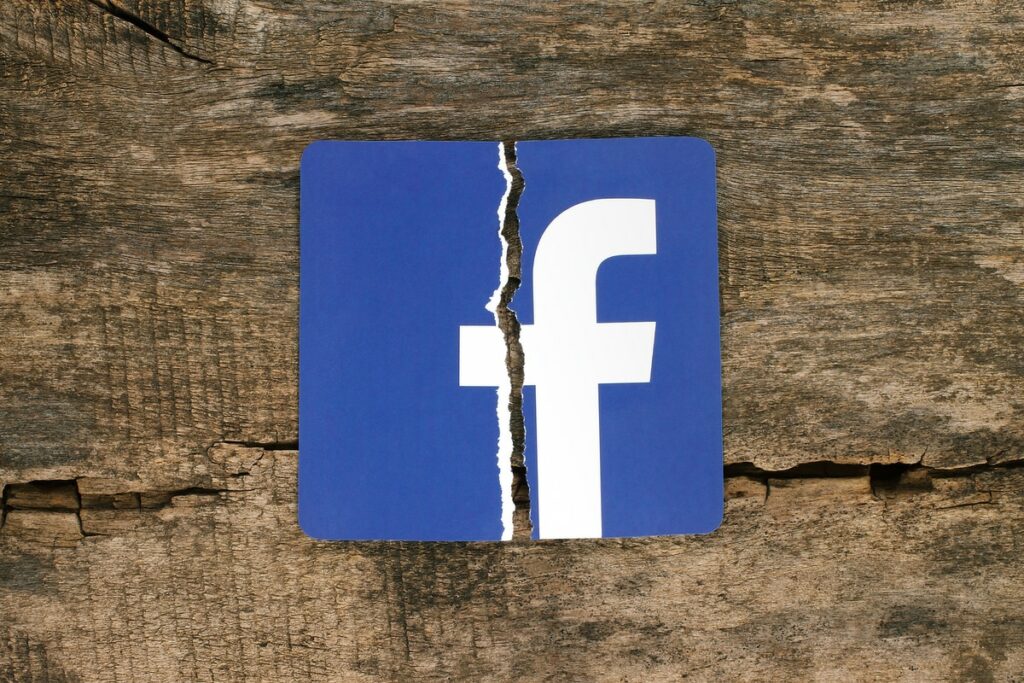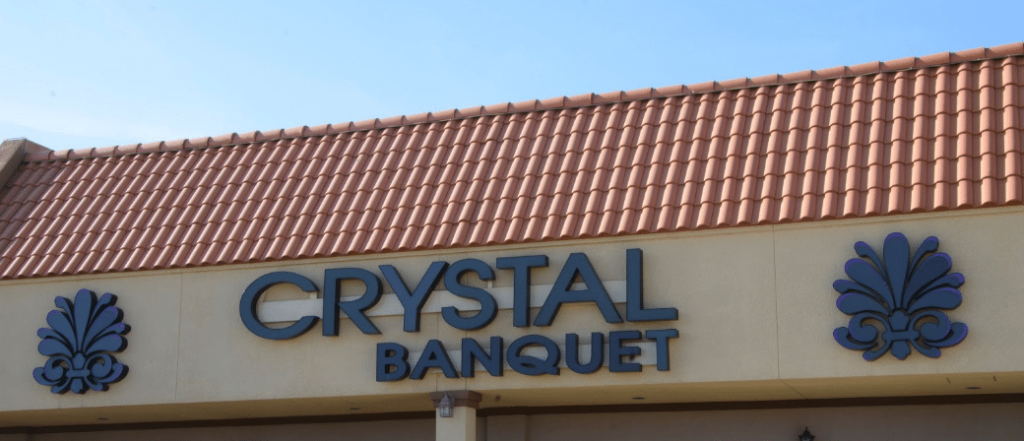Are Travel Healthcare Social Media Groups Too Toxic?

Social media is a pillar of many people’s daily lives in spite of numerous controversies over the years. Currently, 68 percent of adult Americans use some type of social media, and a majority of them use it on a daily basis, according to data from the Pew Research Center. Daily social media use mirrors the original goal of the platform for many—to help them stay connected with their friends, family and loved ones, and to share their experiences with them. This is emphasized even further in the travel healthcare community, as travelers have an added incentive to use social media platforms. It not only lets them stay in touch with their friends and family on the road, but it provides a platform to network and share knowledge with a vast number of their travel colleagues on a daily basis. “I use Facebook the most for sure,” said Kayla Jones, a travel certified surgical technologist. “I would say mostly because of my job. I’m away from my boyfriend and my family and all of that so I use it to keep up with them. I’m part of a couple of different traveler groups obviously, and I’m also part of scrub tech groups so I use it for…keeping up my knowledge for my next assignment.” Despite these benefits, that same Pew Research Center study found a majority of adults say they would have no problem giving up social media entirely, and many have begun reducing their use of Facebook. It’s easy to assume the decline in usage is related to the barrage of privacy scandals that have hit Facebook, Twitter and other platforms in recent years, but several travel healthcare professionals have pointed to a different issue entirely. Toxicity on social media is not a new problem—studies have shown that social media has a negative effect on mental health—but some say it’s an even greater problem in the travel healthcare community, where a combination of career stress, misinformation, and a mixing of generations can cause a perfect storm of angry posts and nasty comments. “Sometimes it’s too toxic,” Jones said. “I have to close my computer.” Travel nurse Alex McCoy, who manages both a Facebook page and a social Facebook group for her blog website, Fit Travel Life, has reduced her daily social media use to avoid getting caught up in general travel group discussions, she said. “People have started to realize how unhealthy parts of social media can be, and this is across the board,” McCoy said. “It’s a time suck and can cause a lot of negativity, so I see more people talking about filtering.” The Platform: Facebook reigns supreme Social media use is ubiquitous, but not all of the platforms are equal. Facebook still reigns as the most popular social media platform by a wide margin, despite seeing a decline users last year for the first time since 2008. For travelers, one major appeal for using Facebook over competing platforms like Instagram, LinkedIn, Twitter or Snapchat is the ability to form groups. Groups can be created by any Facebook user and provide a public or private space for people to connect through shared interests. Use of groups grew rapidly in 2018, after Facebook changed its algorithm to encourage users to engage more with groups and friends instead of businesses or brands. Healthcare professionals have their choice of numerous different traveler-oriented groups, which range in size from a few dozen users to tens of thousands of members. The focus points of travel healthcare groups also vary greatly, from catch-all travel nursing discussion forums to hyper-specific premium job boards. LinkedIn has also offered a Groups function since 2004, but there are noticeably less groups on the platform targeted at or created by travel healthcare professionals. Thomas Piper, a travel nurse and admin for his own group Scrub Squad 1978, said he’s experimenting more with LinkedIn and Instagram but still prefers Facebook because there’s a lower barrier of entry to communicating with others. “You can connect more,” Piper said. “People don’t have to subscribe to your Instagram, and you can get more information and more messages across that way.” Alex McCoy prefers Instagram to Facebook because of its focus on photo and video content, but agreed that Facebook offers the best tools to connect directly with others. “Instagram can be good for connecting but there is just not really the capability of creating communities,” McCoy said. “It can be hard to get ahold of people. I have tried to connect with people on Instagram and they literally just don’t see my messages because we aren’t following each other so that makes it harder to connect unless you are commenting on posts.” The Problem: Stress, separation and a lack of information Researchers, bloggers and many others have tried to identify the reasons behind social media toxicity with varying conclusions. Some have pointed to the growing political discord surrounding the upcoming 2020 presidential election, while others have aimed the blame at the “commoditization” of likes, comments and shares. Travelers and Facebook group moderators brought up several specific issues that they felt either contribute to the problem of social media toxicity—or make it worse. Picking a target Personal attacks aimed at a person, staffing agency, or healthcare facility came up as the most common type of toxic or negative posts in travel healthcare social media groups. “There are different levels,” said Andrew Craig, a former travel nurse who runs the Traveler Talk Facebook group and website. “The most subtle version of that is simply a sarcastic or condescending comment. We like to think it’s just a comment but in reality, it can affect the other person on the other side of the screen in a physical and emotional way.” Most agreed heated debates are not a problem. Discussions, even when people don’t agree, can be helpful for the community at-large, Kayla Jones said. The discussion crosses into toxic territory when it devolves into targeted, angry comments. “That’s kind of where things on Facebook and
Dallas Nursing and Healthcare Career Fair opens Thursday

Travel nurses and healthcare professionals in the greater Dallas-Fort Worth region have a chance to meet in person with industry insiders and hiring managers on Thursday at the Dallas Nursing and Healthcare Career Fair. The career fair, which will take place from 10 a.m. to 2 p.m. CST at the Crystal Banquet Hall in Plano, will feature local and national healthcare hiring managers, including companies like Dallas Regional Medical Center, NMA Academy, Guardian Home Healthcare, Steward Family Hospital, Staff DNA and several others. The event will also offer free resume reviews by Nickquolette Barrett with iRock Resumes. This event is pre-screened, so attendees must provide valid healthcare credentials to get in the door. Attendees can also pre-register by emailing resume@expoexpertsllc.com with the subject line “Attending EE”, but it’s not required for entry. Attending a screened job fair like this one will help healthcare job seekers save time by having direct interaction with hiring managers, Expo Experts marketing specialist Jamie Barker said. “There are instant, built-in interviews, which saves time and allows you to make an impression much faster and easier than the traditional filling out of an application and waiting for a phone call,” Barker said. For more information about the event, visit the Expo Experts website.
Travel Nurse Agency: 3 Signs It’s Time to Find A New One

When you started traveling, you may have had a great relationship with the people at your travel nurse agency. But like all relationships, things can change. The people you enjoy working with move on. Shifting business goals can mean that focuses switch, and things just aren’t what they used to be. Whatever the reason, that relationship that you once had is different now. It’s just not working for you, and you’re thinking about making a switch. Before you make any agency change, you may want to consider switching recruiters, especially if you’re with an agency that generally has a good reputation. But if you’re seeing any of these signs, a recruiter change may not be enough. It could be time to break up with your agency. Your travel nurse agency’s response time is more than 24 hours. How quickly does your agency respond to issues? What about submittals? How quickly can they find answers for you? If you contact your agency and someone there doesn’t respond to you on the same day–extenuating circumstances excluded–then they are taking too long. Keep in mind that you have the power to create urgency. If you call and leave a message that tells your recruiter your question isn’t critical and that they can get back to you at their convenience, then that “same day” timing may slip some. But no agency should leave you hanging, and if yours does then it’s time to find a new one. The recruiters aren’t nurse-centered. Who is your recruiter most concerned about, you or the agency? If your recruiter continually pushes you toward jobs that you don’t want in locations you have no interest on shifts that don’t match your needs, then they likely aren’t worried as much about you being happy as they are about lining their agency’s pockets. The control over what job you take should always be in your hands. Your recruiter should be listening to what you want and tailoring a plan around that. He should know your goals and help you meet them. You feel like you aren’t getting the whole story. Transparency is the hallmark of a good agency/traveler relationship, and if you feel at all like your travel nurse agency is keeping things from you then it’s time to start shopping for a new one. How do you know if you aren’t getting the whole story? Look for indirect answers to direct questions. That’s usually a good sign. If they hem and haw when you ask about pay for a potential contract, they aren’t being transparent. Same is true about jobs. Sometimes, jobs just aren’t available that meet your criteria. A good recruiter and a good agency are going to tell you that.
Location & Legislation: Factors Impacting The Traveler Job Market (Part 1)

The term “hot market” isn’t just a corporate buzzword; it’s a battle cry for travel nurses and travel staffing agencies across the country. Nurses want to know where the jobs are and recruiters watch the market like hawks, hoping to place their nurses in the right place at the right time. For Oren Lavi, director of client advisory at LiquidAgents Healthcare, regularly updating the recruiting team is how the agency makes sure its nurses stay on top of a fast-changing travel nurse job market. “‘What’s going on in this territory?’ ‘Do you see any changes in this state?’ ‘What hospitals made acquisitions?’,” Lavi said. “They want to know all the details because they want to inform their nurses so that when they’re making their next step, it’s a logical step.” Smart travel nurses should be asking similar questions of their recruiters because there are many factors that can affect which markets are hot and when. Flying south for the winter Just like birds seek balmy temperatures during harsh winters, travelers and their patients tend to do the same. “There’s a definite seasonality to market shifts,” Lavi said. “You have Florida, Arizona and New Mexico where people from up north spend time in the south. If they get sick, it’s not at home but down in these states instead, so these hospitals see a boom in patient loads and need nurses to take care of them.” The problem is nurses want to go where it’s warm too, so while demand for them is high, so is the supply. That pushes pay down. So, while it may be more comfortable spending winters at a Florida beach, travelers who brave the cold can make great money in northern states like Wisconsin, Illinois and Michigan. Hospitals in these states will often incentivize travelers to fill positions by paying more during colder months. Even with seasonal shifts, there are some states that stay “hot” year-round, like Texas and California, Lavi said. “With Texas being so big and the temperature so moderate, it will always have demand,” Lavi said. Affordable Care Act boom Lavi says there’s been no bigger boon to the market than the Affordable Care Act, specifically in 2015, the year after the tax mandate kicked in that required all U.S. citizens to buy health insurance or incur a penalty. The mandate, along with new access to tax credits for small businesses and federal subsidies for health coverage, caused a sizeable surge in insured Americans. “Everyone getting health insurance meant more people were actually going to see a physician when they needed to, which made demand even stronger,” Lavi said. “Patients benefited from getting the care they needed, hospitals benefited because they served more patients and travelers benefited because there was more opportunity out there.” Lavi expected the job market to drop at the start of this year after President Donald Trump signed the GOP’s tax reform bill into law in December of last year, which also repealed the health care coverage mandate. But so far demand has not dropped in 2018, Lavi said. “The territories I’m working right now are super hot,” Lavi said. “Travelers want to go there and we have more than enough positions for them. But if something like the Affordable Care Act (mandate) gets re-enacted, that could spur another market jump.” The nursing strike “vacuum effect” Hospital strikes are a fairly regular occurrence across the U.S. Nurses who feel they are overworked, underpaid or mistreated by management organize strikes to force hospitals into negotiations, leaving these facilities without necessary staff to take care of patients. It happens often enough that some staffing agencies specialize in placing nurses in strike areas. Hospitals will also offer significantly higher bill rates to quickly fill staff spots during a strike. While not all agencies necessarily fill strike positions, recruiters do still keep track of strikes because of the “vacuum effect” they can have on the market, Lavi said. “The strikes in Minnesota last year sucked up a lot of travel nurses…the number was in the thousands,” Lavi said. “That left a lot of other hospitals with unfulfilled needs. It was good for nurses who don’t want to work strikes because that meant less competition to get a job.” In Part Two, Oren talks about how the looming nursing shortage, hospital mergers and traveler goals also affect the market. Click here to read Part 2.
